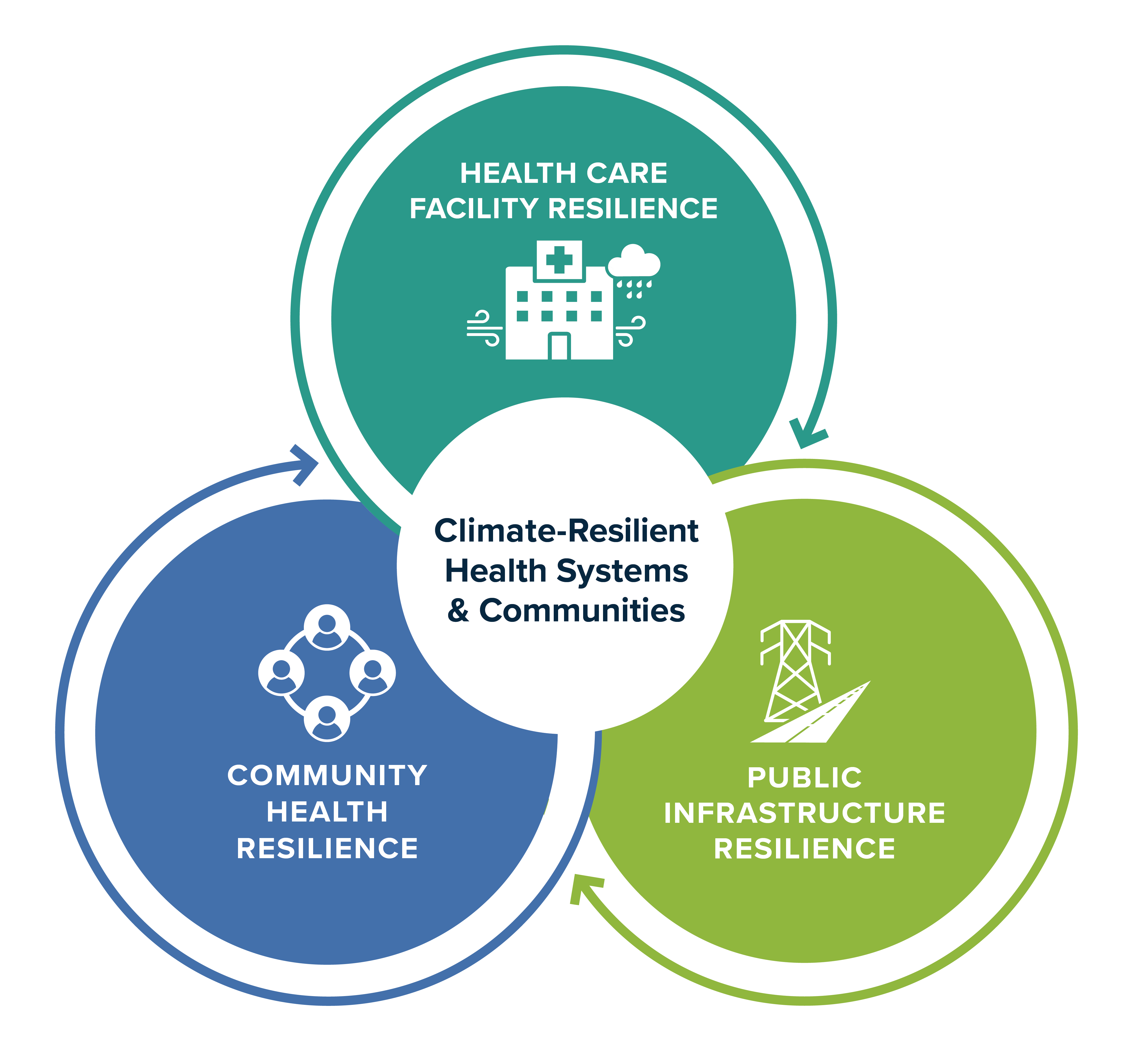Resilience
Health care is at the epicenter of pandemics, climate disasters, and other public health emergencies, which individually and collectively have a disproportionate impact on people of color and reveal significant health and socioeconomic disparities within our communities. These crises highlight the essential role of health care workers, the importance of accessible health care facilities as critical infrastructure, and the deeply rooted connection between health care, community health, equity, and resilience.
Climate change is a threat multiplier for all social and environmental factors that contribute to disease and widen inequality.

Resilience is the ability of communities to thrive amidst acute and chronic climate, economic, and health disruptions within the ecosystems that sustain them. Our definition includes a combination of climate adaptation and social resilience strategies that focus on:
1. Health care facility resilience
2. Public infrastructure resilience
3. Community health resilience
Alongside mitigation efforts and proactive leadership, all of these dimensions are needed to fully address the current and future impacts of climate change in a holistic, integrated, and effective way.
Our vision for the future
We see a future with healthy people living in equitable, resilient communities on a thriving planet. This is a future in which all communities are prepared for the shocks and stressors of the climate crisis, with uninterrupted access to health services during extreme weather events.
We envision health systems building physical, social, and economic conditions to support community health and well-being, harnessing the enormous economic power and influence of the health care sector to move beyond emergency care toward healing the harm that exists today in the form of ecological degradation, health vulnerabilities, and economic disparities.
To achieve this vision, hospitals must break down internal silos, while building and repairing trust with communities by acting with greater humility, inclusion, and true partner engagement. This is referenced in the leadership principles that guide how we engage health care leaders.
Our work
Health Care Without Harm has decades of experience working with health systems in innovating, piloting, and implementing partnerships and initiatives to transform the health care sector and activate its assets in service of environmental health and justice.
Our work aims to leverage these assets while illuminating and addressing systemic racism within the institutions themselves, the systems health care influences – and to the extent possible – the communities they serve.
Our initiatives range from introducing hospitals to projects centered around community collaboration to long-term opportunities for equitable partnership and decision-making, including:
- energy efficiency, weatherization, and healthy housing initiatives directed at individuals identified as having the highest health risks
- community access to nutritious, local, and sustainable meals with a food-as-medicine approach
- hospital-community climate emergency preparedness planning
- institutional food rescue and distribution to those who are food insecure
- tree planting to mitigate extreme heat and improve health
- sustainable transportation initiatives
- community business and workforce development through local sourcing
- defining community benefit indicators for environmental health and justice
Our resources
- Anchored by health care: Strategies for health systems
- Climate resilience for health care and communities: Strategies and case studies
- Partnering for resilience: A practical guide to community-based disaster planning for health care
- Anchors in Resilient Communities initiative
- Impact Purchasing Commitment
